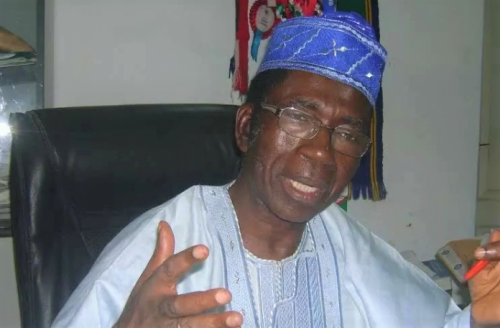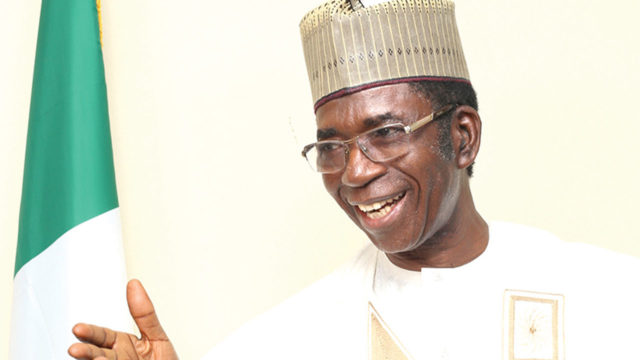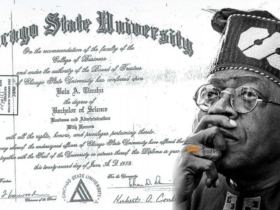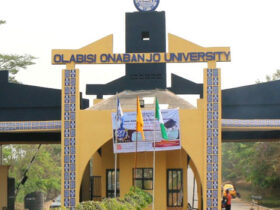
The Former Minister of Education Prof. Tunde Adeniran, has criticized the Academic Staff Union of Universities( ASUU for frequent academic Strikes and has been a dent in the system. He explains that these strikes are one of the Major reasons why Nigeria’s education system experiences a fallen standard for the delivery of quality education.
Minister Adeniran, also known as a former Nigerian Ambassador to Germany explicitly evaluated the problems of ASUU’s strike in chapter 3, page 52 of one of his books recently presented Which is Titled “Some Thoughts on Education in Nigeria.”
He explains, “Strikes by Academic Staff Union of Universities have no doubt become one of the defining characteristics and features of Nigeria’s university system with serious impacts on the state of education in Nigeria.”
He added that, ”One of the undeniable facts and reasons for the perceived fallen standard of education and the delivery of quality education is the epileptic nature of the school calendar as a result of too frequent strike actions in the system. When students spend a great deal of designated term/study time at home as a result of teachers’ strike, the eventual time spent on academic work is often insufficient to meet the expected exposure and concentration requirements for quality academic work.”
“Academic activities are rushed to cover lost grounds and, in many cases, left uncovered. This adversely affects the quality of products and their ability to deliver on their areas of presumed and assumed competence in the open market and on the job.”
Traveling back in time, he said, The Academic Staff Union of Universities, ASUU came into light when the previous Nigerian Association of University Teachers, NAUT, formed in 1965, was re-named in 1978 with the promulgation of Decree 19 of 1976.
“The main motive behind the creation of ASUU, as a trade union and a pressure group, is to serve as a structural ground for academic staff in universities; regulate relations between academic staff and their employers and among members.”
“From the above, it is evident that the union is required to serve as a formidable front for canvassing increased protection and improvement of members’ welfare, and of advancing the collective interest of the system.”
“However, it appears that ASUU has recently become more known for strike actions than for other critical functions that gave rise to its formation.”
He noted that an analysis of the desperate state of education in Nigeria “does not require at this stage, a rehash of the debates regarding the correctness, rightness and legitimacy or otherwise of these strikes”, he said well-meaning Nigerians were concerned essentially with the implications of the strike actions on such critical areas as quality of education, human capital development and general perception of the education system.
“From whatever angle one considers these, a negative effect has largely attended to the incessant strike actions by ASUU,” He emphasized.








Leave a Reply